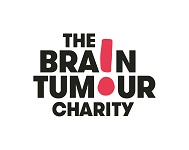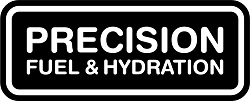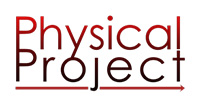As well as being a lead guide for Everest in the Alps, James has extensive experience supporting a range of projects all over the world, including exploratory mining, anti-poaching operations and TV / Film productions. With a military background he is now an experienced Risk Management Consultant and Safety Advisor. As a UK-registered Paramedic James specialises in expedition and remote area medical support.
James loves his job for the adventure it brings him, as well as the chance to work with incredible teams on amazing projects. The opportunity to provide support to projects in wild, remote and beautiful areas is not something he takes for granted.
He lives in Cornwall and enjoys surfing, spearfishing and is currently training to join the French Mountain Rescue.

Where to begin?! James you have such an interesting career! What have been some of the highlights so far?
Hi Anna! Thanks! For me, it is always a highlight to be able to work with good friends, and to meet new ones on our adventures.
A period which will always stick in my mind was working on a wildlife concession area in a remote corner of Mozambique. I was lucky enough to be involved with a fantastically dedicated group of wildlife conservationists who, while always battling for adequate funding, were performing miracles in terms of managing a huge swathe of the country.
I had not spent long in the bush prior, and it was a real privilege to learn from guys who lived it day in and day out. Their passion was infectious, something I can only hope to imitate in my own life. Supported by the WWF, Howard Hunter manages the concession which is located north of Lichinga in the north of the country.
Poaching is a huge issue, and the dedication of the anti-poaching teams I was working with has taught me much about the sacrifices some people make for the benefit of the rest of us.

Where did your love of all things adventure come from? Was it encouraged when you were growing up or was it only after joining the military?
I think it has always been with me – i’ve really enjoyed the friendships which develop through shared experiences – and often shared hardships! As children we were encouraged to play team sports, but also to get involved in more outdoor activities like scouting.
Much of my childhood was spent in the Essex countryside, where I was encouraged out of the door early in the morning, and hid in the woods to avoid bed-time in the evening. My friends were all similar guys, and we would spend our time trying to get as wet, cold and uncomfortable as possible…pretty strange group really!
Tell us more about Nomad Risk. What led you to set it up and how different is it from your average ‘risk’ company?
A good friend and I started Nomad a few years ago – really as a way of harnessing our passion for adventure to the work environment. It’s a risk management business, which involves providing safety support, security advice and medical cover to all sorts of organisations and enterprises. We often work with media productions when they go off to far flung places, but also there is a growing requirement for UK based support, particularly in light of COVID.
We have been very lucky to be able to work with some fantastic organisations, like Secret Compass and First Option, and we feel that having great relations with these groups is a real strength within the industry. It’s been brilliant creating an awesome team at the top of their game, who are primarily friends, but can go away and deliver a great service and have an awesome time doing it!

The French Mountain Rescue is notoriously hard to join… how is the training going and how far along are you?
Well, it certainly has been difficult for me – and i’m not finished yet! The selection process involves a series of tests, one of which was a real problem for me… The ski ‘Technique Test’ is basically just a 400m vertical off-piste free descent, but graded by several juries perched on the side of the mountain on the way down.
There are only a few tests a year, with a handful who will pass and hundreds of candidates, so the pressure is on! It took me 6 years of failing, training and re-trying to pass but managed it this winter which just proves that talent is not always the deciding factor in these things! I have just completed the medical element of the training and have a place on the final mountain phase in April next year.

How did you get involved with Everest in the Alps and what is your role in the challenge?
I was lucky enough to be asked by Tom to help out last year as one of the other guides had picked up an injury. Each team has one ‘AGS guide’ and one ‘lead guide’, Martin and I were the guides for our team, and we had an awesome time with a brilliant group on what was a serious challenge.
Most people don’t get to experience expeditions run by British ex military. How important is having that level of professionalism that this brings?
The management team for the EIA is second to none, and you can clearly see this in the product they deliver. I think it’s a great insight into the high level planning and professionalism which is second nature to the military guys, but which may be new to the challengers. It is a great opportunity for non-military people to get an insight into how a military-run expedition is run, in a friendly and open environment.

How do you think EIA compares to other ‘challenges’ Is it a real test for the average person?
EIA is a serious challenge; four days ski-touring at those elevation gains is something which needs to be trained for, and prepared for accordingly. However, it is certainly achievable if you put the effort in. Success is earned in the months prior to those four days in the Alps, during your training.
Having Adaptive Grandslam members as assistant guides for EIA was something that all team members found inspiring. Especially as they turned out to be the fittest and most ‘able’ on the mountain, despite the disabilities they had suffered in combat. Did you find this helped the teams push themselves harder?
The AGS guides are really one of the aspects of this challenge which makes it unique. It is fairly rare for people to meet veterans who have suffered serious injuries serving our country. To be able to share an experience like this with those guys is genuinely inspirational, and an honour.
It is also hugely motivating for the challengers, who can see how hard the AGS guys are working, helping them to dig deeper themselves. This all adds to the ‘shared suffering’ experience, and ultimately for closer friendships and a deeper experience.
What did you find people struggled with the most? What can people do to prepare better and be in the best place to complete this challenge?
Fitness is clearly something that you need to be on top of when you arrive, but there are other issues at play also. Two important ones are how to manage your kit and equipment when on the hill – you don’t want to be too hot when skiing up the hill, or you will sweat out your clothing, but you need to be on top of your ‘admin’ to put warm clothes on quickly when you stop. It is important to have a good process to do this or you, and the rest of your team, will get cold and wet unnecessarily.
Secondly, people often suffer with foot care – making sure you stop as soon as you feel a ‘hot-spot’ on your feet and getting a dressing on it will help prevent blisters developing. Some of the blisters which the guys had on the last EIA were quite severe, and certainly added to the challenge, as every step would have been agony.

Finally, what’s next for you? Apart from another Everest in the Alps trip of course! Have you anything exciting planned that you can tell us about?
We have a few jobs coming up. I am heading to the Bahamas on a television shoot next week, and we also have jobs going to China, Alaska and Tanzania in the next few weeks.
In the longer term i’m looking forward to the winter season, and making sure that I am in good shape for the next EIA!
Instagram: @NomandRisk
Website: NomadRisk










